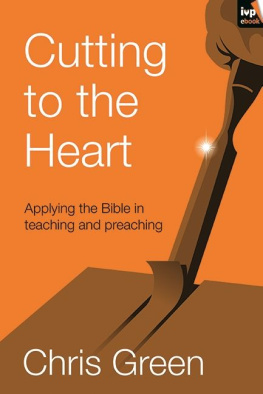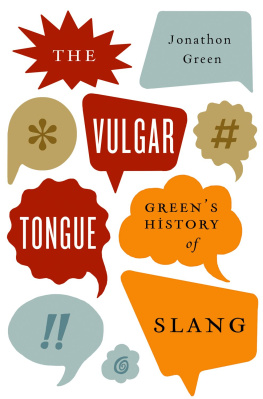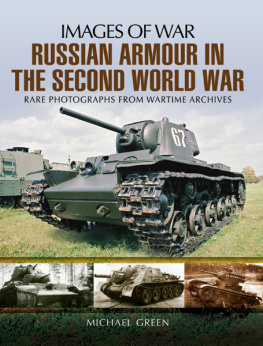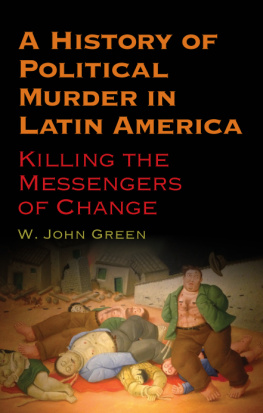Green - Cutting to the Heart
Here you can read online Green - Cutting to the Heart full text of the book (entire story) in english for free. Download pdf and epub, get meaning, cover and reviews about this ebook. year: 2015, publisher: Inter-Varsity Press, genre: Religion. Description of the work, (preface) as well as reviews are available. Best literature library LitArk.com created for fans of good reading and offers a wide selection of genres:
Romance novel
Science fiction
Adventure
Detective
Science
History
Home and family
Prose
Art
Politics
Computer
Non-fiction
Religion
Business
Children
Humor
Choose a favorite category and find really read worthwhile books. Enjoy immersion in the world of imagination, feel the emotions of the characters or learn something new for yourself, make an fascinating discovery.
Cutting to the Heart: summary, description and annotation
We offer to read an annotation, description, summary or preface (depends on what the author of the book "Cutting to the Heart" wrote himself). If you haven't found the necessary information about the book — write in the comments, we will try to find it.
Green: author's other books
Who wrote Cutting to the Heart? Find out the surname, the name of the author of the book and a list of all author's works by series.
Cutting to the Heart — read online for free the complete book (whole text) full work
Below is the text of the book, divided by pages. System saving the place of the last page read, allows you to conveniently read the book "Cutting to the Heart" online for free, without having to search again every time where you left off. Put a bookmark, and you can go to the page where you finished reading at any time.
Font size:
Interval:
Bookmark:
This is a book that both young and seasoned preachers will find themselves returning to again and again. Here is real practical help which is theologically informed on one of the great challenges in preaching. Those who want to understand just what we mean when we talk about applying the text of the Bible in teaching and preaching, and how to do this in a faithful and effective way, will benefit greatly from Chris Greens labours.
Mark Thompson, Principal, Moore College, Sydney
Chris Green, 2015
Chris Green has asserted his right under the Copyright, Designs and Patents Act, 1988, to be identified as Author of this work.
All rights reserved. This eBook is licenced to the individual who purchased it and may not be reproduced, stored or transmitted, in any form, or by any means, electronic, mechanical, or otherwise, except for the sole, and exclusive use of the licensee, without prior permission of the publisher or the Copyright Licensing Agency.
Unless stated otherwise, Scripture quotations are from the Holy Bible, NEW INTERNATIONAL VERSION. Copyright 1973, 1978, 1984, 2011 by Biblica, Inc. All rights reserved worldwide. Used by permission.
Scripture quotations marked ESV are from The Holy Bible, English Standard Version 2001 by Crossway Bibles, a division of Good News Publishers. Used by permission.
First published 2015
ISBN: 978-1-78359-294-4
Cover design: Kev Jones

INTER-VARSITY PRESS
Norton Street, Nottingham NG7 3HR, England
Email:
Website: www.ivpbooks.com
Inter-Varsity Press publishes Christian books that are true to the Bible and that communicate the gospel, develop discipleship and strengthen the church for its mission in the world.
Inter-Varsity Press is closely linked with the Universities and Colleges Christian Fellowship, a student movement connecting Christian Unions in universities and colleges throughout Great Britain, and a member movement of the International Fellowship of Evangelical Students. Website: www.uccf.org.uk
The word of God is alive and active. Sharper than any double-edged sword. (Hebrews 4:12)
For Dick, who persistently asks what is in the text, and for Richard, who persistently asks what he is supposed to do with it.
To be invited to give the annual Moore College Lectures is a daunting honour. These public lectures, inaugurated in 1977 by F. F. Bruces series on biblical theology and later published as The Time Is Fulfilled ,
Runias and Adams books reflect on and feed into the enormous range of contemporary literature on preaching, from the dauntingly complex issues of hermeneutics, through careful exegetical practice, to current debates about communication and style.
But I accepted the invitation to lecture about preaching because in that range there is still only a handful of books on the issue of application; and if we ask what God intends to do through his inspired Word, the comparative gap on the shelves becomes rather obvious and embarrassing. My goal is to place something at that point in the preachers study, and to encourage the discussion further. As I hope to show, the issues that application touches range both deeply and widely, and will need many more conversation partners. I have deliberately kept the focus on personal and corporate application to Christians; the questions of application to wider society or to those who are not Christians (other than in evangelism) are significant in themselves, but are distinguishable from how God changes his people to become like his Son. Similarly, I have not explored issues of pastoral counselling, although a number of books I refer to have that issue at the forefront and it is a directly related issue.
I was also keen that the format of the lectures did not turn into a forbidding book that would not help the normal preacher preparing normal sermons in a normal church. So I have split the lectures into short chapters, given the ideas more room to breathe, put in material I did not cover in Sydney and included a number of diagrams. These are tools I use myself whenever I prepare a sermon, and I hope others find them useful. I have also included discussion questions at the end of each chapter, because many churches have small teams of preachers, and these issues are helpful to work through together.
So I am enormously grateful to the faculty, students and graduates of Moore College who listened to and engaged with this material, and showed me such warmth and hospitality. I am particularly grateful to the then principal, Dr John Woodhouse, both for extending the invitation and for being such a kind and warm host, together with his wife, Moya.
Much of this material has been developed over the years at Oak Hill Theological College in London, and I am also grateful to its principal, Dr Michael Ovey, for giving me the permission to use the material, and encouragement to accept the invitation, and then to bring it to this point. Now I have moved back into a regular preaching ministry, I am thankful to the members of St James, Muswell Hill, for their continued encouragement and support as we learn from Gods Word together.
My wife and children put up with extended absences from me, and managed not to be too obviously envious of my trip to Australia; it is a privilege to know their love and support in ministry.
But opening Gods Word before his people is an even more daunting honour than flying in to give some lectures, and it is one that many of us know well and could easily become familiar with. My prayer as a preacher is almost always the same: Lord, would you open your Word to our hearts, and open our hearts to your Word. Amen.
Chris Green
Sydney 2012, London 2014
The words of the wise are like cattle prods...
(Eccl. 12:11)
It was a humid summers evening at the end of a long summers day, and the people had come to church. They fanned themselves cool with their notice sheets, stood a little further apart than usual when they sang, and tried, unobtrusively, to separate themselves from their sticky clothing. They dozed.
I cannot remember what passage I preached on that night, but the details are still painfully clear to me. Because halfway through the sermon my minds eye saw a little banner scroll across the bottom of my eyesight, and like the breaking news element on a website it told me quite clearly, This is very boring.
I could see it in their faces. I could feel it in my head. I can still see the page of my notes in my minds eye to this day, because although I cannot remember what I was preaching on I do know I was midway through an illustration about a Russian tsar of which I was very proud. But just as I remember seeing the newsflash, so too I remember going home and vowing that never ever would I allow myself to preach like that again. I have failed on many occasions, of course, but that experience has burned into me my dreadful responsibility for preaching the worst sermon I have ever heard.
What had gone wrong? Theologically, it is hard to say. The word of God is alive and active. Sharper than any double-edged sword (Heb. 4:12), and God was no doubt waiting to wield it that evening among his people. The church was one with a long history of faithful Bible teaching, and the members were keen and well taught. I had spent my time in my study, reading, thinking and praying, and I had written it carefully. I know that because it is what I always did. That raises the rather discouraging thought that maybe I was equally as bad on every other occasion as well.
Next pageFont size:
Interval:
Bookmark:
Similar books «Cutting to the Heart»
Look at similar books to Cutting to the Heart. We have selected literature similar in name and meaning in the hope of providing readers with more options to find new, interesting, not yet read works.
Discussion, reviews of the book Cutting to the Heart and just readers' own opinions. Leave your comments, write what you think about the work, its meaning or the main characters. Specify what exactly you liked and what you didn't like, and why you think so.









